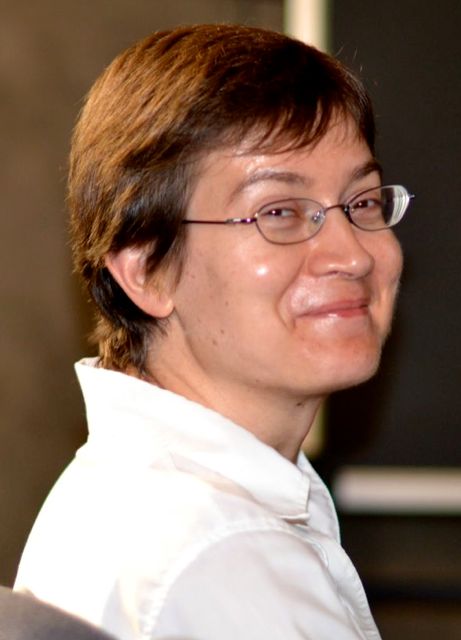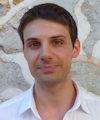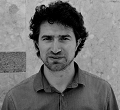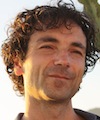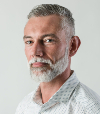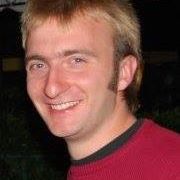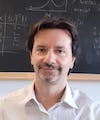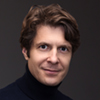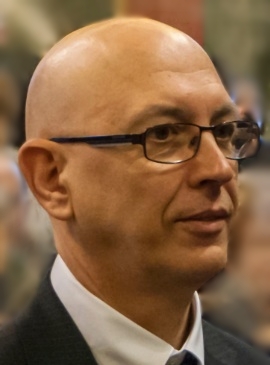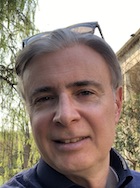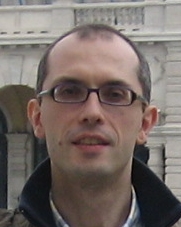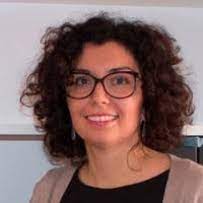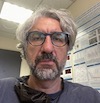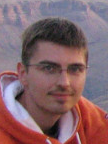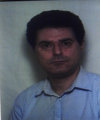Studying at the University of Verona
Here you can find information on the organisational aspects of the Programme, lecture timetables, learning activities and useful contact details for your time at the University, from enrolment to graduation.
Academic calendar
The academic calendar shows the deadlines and scheduled events that are relevant to students, teaching and technical-administrative staff of the University. Public holidays and University closures are also indicated. The academic year normally begins on 1 October each year and ends on 30 September of the following year.
Course calendar
The Academic Calendar sets out the degree programme lecture and exam timetables, as well as the relevant university closure dates..
| Period | From | To |
|---|---|---|
| I semestre | Oct 1, 2018 | Jan 31, 2019 |
| II semestre | Mar 4, 2019 | Jun 14, 2019 |
| Session | From | To |
|---|---|---|
| Sessione invernale d'esame | Feb 1, 2019 | Feb 28, 2019 |
| Sessione estiva d'esame | Jun 17, 2019 | Jul 31, 2019 |
| Sessione autunnale d'esame | Sep 2, 2019 | Sep 30, 2019 |
| Session | From | To |
|---|---|---|
| Sessione Estiva | Jul 18, 2019 | Jul 18, 2019 |
| Sessione Autunnale | Oct 17, 2019 | Oct 17, 2019 |
| Sessione Invernale | Mar 18, 2020 | Mar 18, 2020 |
| Period | From | To |
|---|---|---|
| Sospensione dell'attività didattica | Nov 2, 2018 | Nov 3, 2018 |
| Vacanze di Natale | Dec 24, 2018 | Jan 6, 2019 |
| Vacanze di Pasqua | Apr 19, 2019 | Apr 28, 2019 |
| Festa del Santo Patrono | May 21, 2019 | May 21, 2019 |
| Vacanze estive | Aug 5, 2019 | Aug 18, 2019 |
Exam calendar
Exam dates and rounds are managed by the relevant Science and Engineering Teaching and Student Services Unit.
To view all the exam sessions available, please use the Exam dashboard on ESSE3.
If you forgot your login details or have problems logging in, please contact the relevant IT HelpDesk, or check the login details recovery web page.
Should you have any doubts or questions, please check the Enrollment FAQs
Academic staff
 maurizio.boscaini@univr.it
maurizio.boscaini@univr.it
 federico.busato@univr.it
federico.busato@univr.it
 mila.dallapreda@univr.it
mila.dallapreda@univr.it
Study Plan
The Study Plan includes all modules, teaching and learning activities that each student will need to undertake during their time at the University.
Please select your Study Plan based on your enrollment year.
1° Year
| Modules | Credits | TAF | SSD |
|---|
2° Year activated in the A.Y. 2019/2020
| Modules | Credits | TAF | SSD |
|---|
| Modules | Credits | TAF | SSD |
|---|
| Modules | Credits | TAF | SSD |
|---|
| Modules | Credits | TAF | SSD |
|---|
2 modules among the followingLegend | Type of training activity (TTA)
TAF (Type of Educational Activity) All courses and activities are classified into different types of educational activities, indicated by a letter.
The Physics of Integrated Devices (2018/2019)
Teaching code
4S00034
Credits
6
Language
Italian
Scientific Disciplinary Sector (SSD)
FIS/01 - EXPERIMENTAL PHYSICS
The teaching is organized as follows:
Teoria
Laboratorio
Learning outcomes
The course provides the physical working principles of semiconductor devices, p/n junctions, FETs, MOSFETs, LEDs and of the logic gates fabricated through the planar technology of integrated circuits.
At the end of the course the student must demonstrate to have assimilated the physical principles of operation of a semiconductor, a p/n junction and electronic devices such as transistors.
This knowledge will enable the student to: i) assemble different types of transistors in circuits by making electronic devices; ii) construct a simple integrated circuit system with the ability to choose between the different devices to be inserted in the circuit; iii) to master the physical phenomena linked to basic devices of integrated circuits in order to know and understand the different behaviours of each circuit based on the set electrical parameters.
At the end of the course the student will be able to: i) interface the software structure with the hardware devices knowing the basic methods of operation of the electronic circuits; ii) understand the programming of hardware systems with greater depth.
Program
In order to properly follow the lectures it is strongly recommended to have already acquired knowledge on classical physics (laws of motion, work, energy, electric field, electric potential).
The course consists of theoretical section and two different experimental sections in the lab (simulation and hardware).
Topics:
Elements of Classical Physics and Atomic Physics: work and energy, electric field and potential, electric current, Ohm's law, linear circuits resistivity and temperature dependence in metals and semiconductors, the Bohr model, the periodic table of the elements
Crystal structure and electrical properties of metals, semiconductors and doped semiconductors: gas model of electrons in metals as a link model in semiconductors, concept of gap, doped semiconductors, nods to the band theory, conduction current and dissemination
P-n junction: non-polarized and polarized junction, ddp contact, voltage-current characteristic in forward and reverse bias, junction diode, Zener diode, OR / AND gates to diodes, switching times
Bipolar junction transistor BJT, input curves and in common emitter configuration output, common base, inverter, transfer rates characteristic and noise margins, switching times
Transitor in the field of JFET and MOSFET effect, manufacturing techniques, output and transfer curves, MOSFET and CMOS inverters, transfer characteristics, noise margins, switching times
Elementary digital circuits in MOS technology, CMOS, bipolar, ECL: NOR and NAND MOSFET and CMOS, NAND DTL, HTL, TTL, OR / NOR ECL
Comparison of logic families: propagation delay, power dissipation, fan-out, noise margins
-Laboratory (software) with circuit simulation with Micro Cap (12 hours).
-Laboratory (hardware) with circuit fabrication on pre-prepared electronic cards (12 hours).
The complete teaching material is available on the e-learning portal.
Bibliography
| Activity | Author | Title | Publishing house | Year | ISBN | Notes |
|---|---|---|---|---|---|---|
| Teoria | Luciano Colombo | Fisica dei Semiconduttori | Zanichelli | 2018 | 978-88-08-52054-8 | |
| Laboratorio | Luciano Colombo | Fisica dei Semiconduttori | Zanichelli | 2018 | 978-88-08-52054-8 |
Examination Methods
The final test will be an oral exams on the topics covered in the lectures.
Specifically a small report (thesis) on a specific topic developed in the course, for example a particular device and/or sensor. The student will present his work by an oral presentation (for example in power point) where questions on the basic physics principles of semiconductors and of electronic devices might arise.
Type D and Type F activities
Documents and news
-
 PIANO DIDATTICO LM-18 LM-32
(octet-stream, it, 17 KB, 21/09/18)
PIANO DIDATTICO LM-18 LM-32
(octet-stream, it, 17 KB, 21/09/18)
Modules not yet included
Career prospects
Module/Programme news
News for students
There you will find information, resources and services useful during your time at the University (Student’s exam record, your study plan on ESSE3, Distance Learning courses, university email account, office forms, administrative procedures, etc.). You can log into MyUnivr with your GIA login details: only in this way will you be able to receive notification of all the notices from your teachers and your secretariat via email and soon also via the Univr app.
Graduation
Deadlines and administrative fulfilments
For deadlines, administrative fulfilments and notices on graduation sessions, please refer to the Graduation Sessions - Science and Engineering service.
Need to activate a thesis internship
For thesis-related internships, it is not always necessary to activate an internship through the Internship Office. For further information, please consult the dedicated document, which can be found in the 'Documents' section of the Internships and work orientation - Science e Engineering service.
Final examination regulations
List of theses and work experience proposals
Attendance
As stated in the Teaching Regulations for the A.Y. 2022/2023, attendance at the course of study is not mandatory.
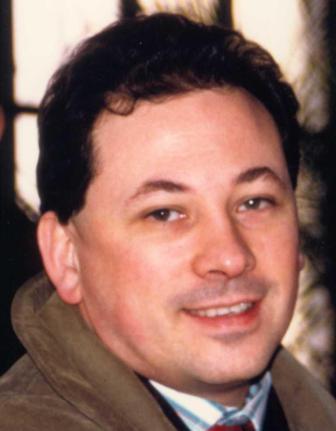
 +39 045 802 7980
+39 045 802 7980

